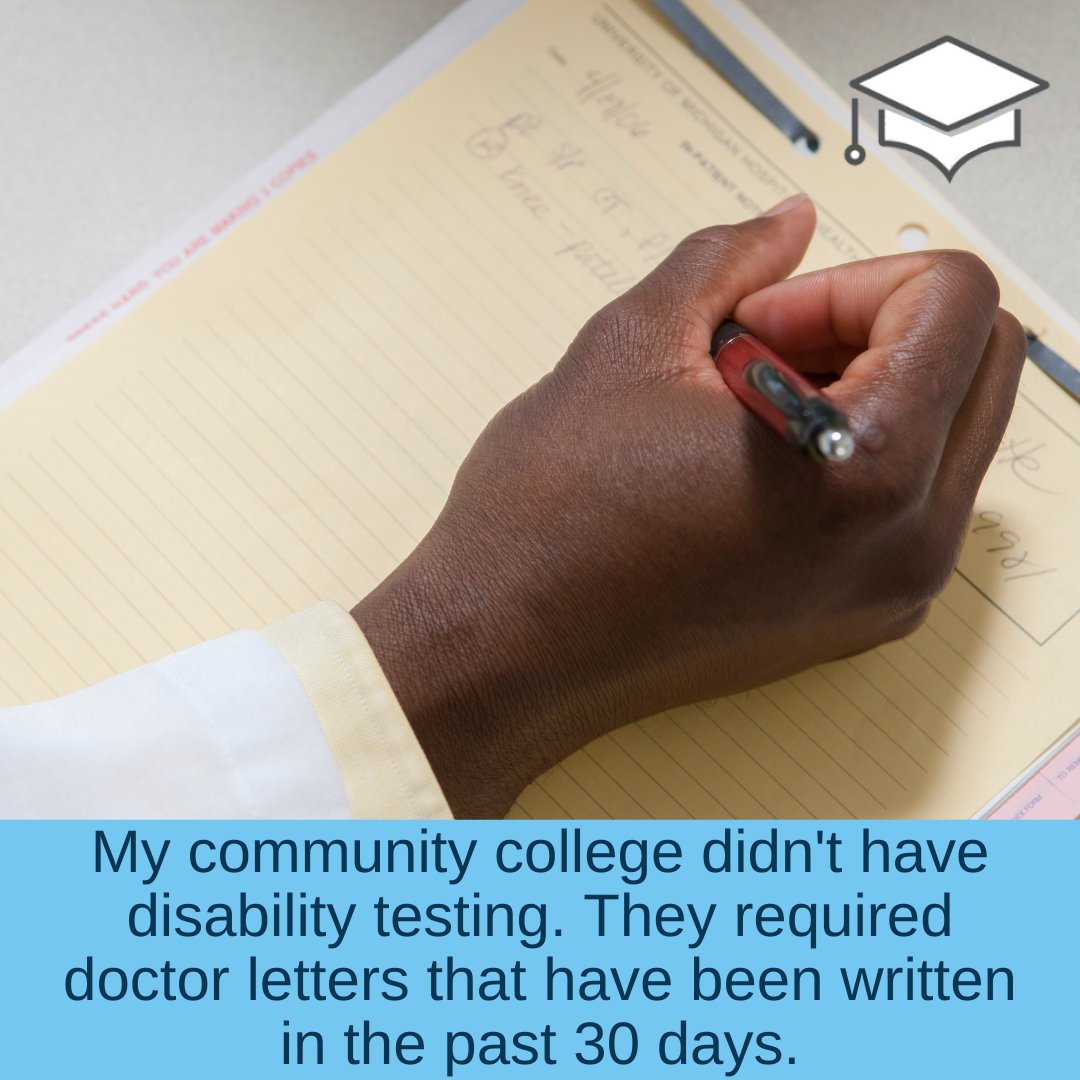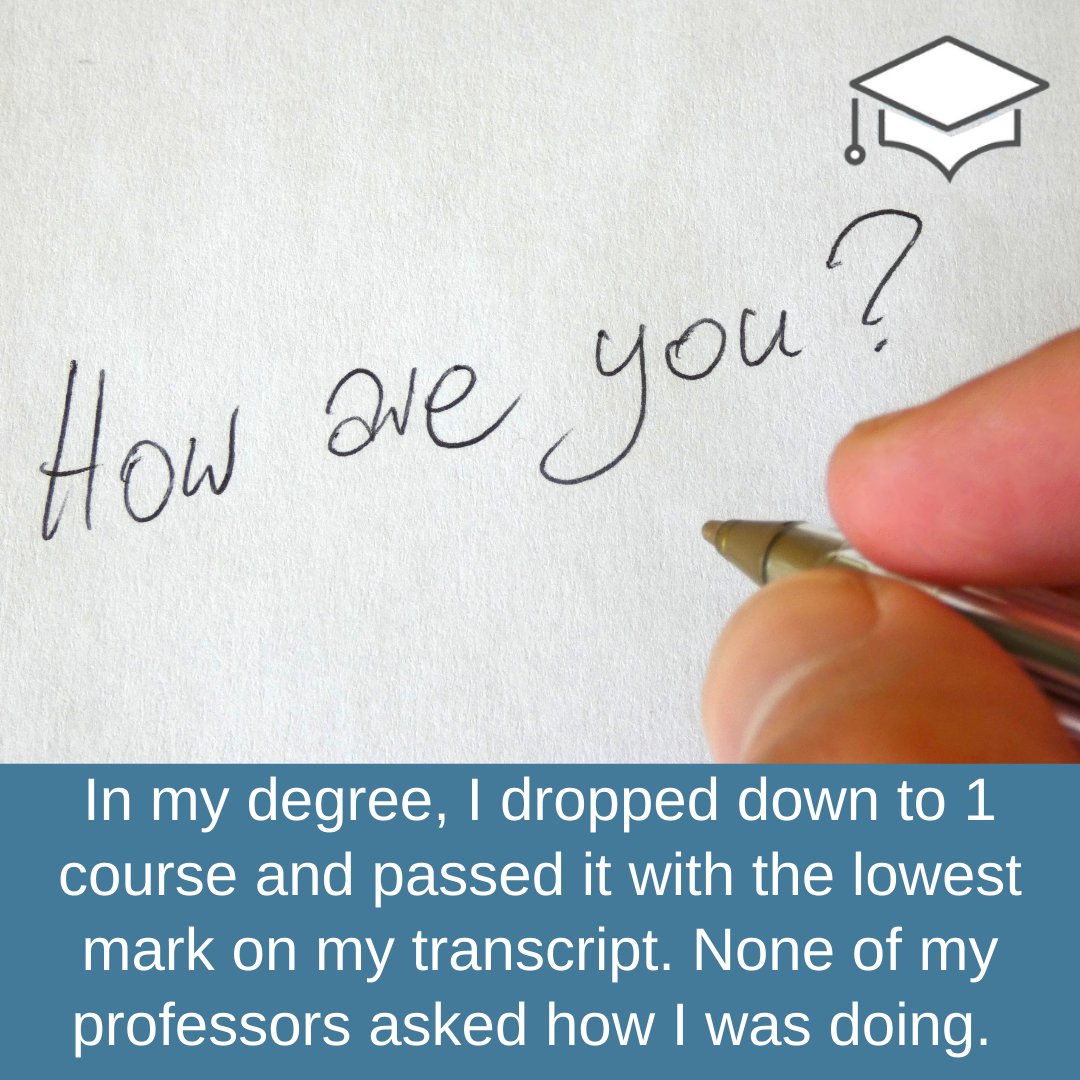
Anonymous Story #8 - Being Open about Plurality
We will be posting this story as a thread below but if you'd prefer to read it as a blog you can do that [blog post] disabledinhighered.weebly.com/blog/being-ope… (1/X)
#DisabledInHigherEd #DEHEM21 #DisInHigherEd
We will be posting this story as a thread below but if you'd prefer to read it as a blog you can do that [blog post] disabledinhighered.weebly.com/blog/being-ope… (1/X)
#DisabledInHigherEd #DEHEM21 #DisInHigherEd
Haven't seen a whole lot of folks like us in higher education, which is probably why we're choosing to share that we exist.
Hello. We're an autistic grad student in the STEM field. We're also an undiagnosed (but seeking therapy) OSDD-1b system. 2/
Hello. We're an autistic grad student in the STEM field. We're also an undiagnosed (but seeking therapy) OSDD-1b system. 2/
In layman's terms: we're many people in one body as a result of identity dissociation, but do not experience traditional dissociative amnesia. This is also called "partial Dissociative Identity Disorder" in the ICD-10. 3/
While our dissociation was likely caused by long-term trauma in our childhood and teen years, we also strongly theorize it's possibly part of how we function as an autistic system. 4/
We have also experienced stress-induced psychosis symptoms, but do not necessarily want to claim a label there because of how little it affects our day-to-day life. 5/
Our path to discovering we were plural was very traumatic and interrupted our undergraduate career, and affects our current graduate school experiences. 6/
While the specifics of our experience are not in this story, we do know for a fact that we're not the only system that has experienced interruptions in school due to coming to terms with plurality, long-term fronting issues, and memory issues. 7/
We've recently started seeking out therapy to work through 1 of our headmates' trauma, as well as to work on strategies to deal with active memory dissociation during the course of our daily life, which leads to us feeling like we're just "waking up" several times a day 8/
For us, being open about being plural is something we're still coming to terms with. Because we're "functional" (as in, able to retain memory and can mitigate most professional and interpersonal difficulties that arise from our plurality) 9/
it seems futile to associate ourselves with being openly plural, especially because of intense ableism & sanism within both wider society & academia. In STEM communities, it's common to discredit wrong scientific practice and conclusions w/ associations to delusion & insanity 10/
In wider society, mentally ill folks with psychotic and dissociative symptoms are often portrayed as villains, as inherently evil, or as being affected by outside forces, which directly harms mentally ill people with psychosis and dissociative symptoms. 11/
Even within the mental health field, many clinical practitioners doubt the validity of DID and OSDD-1 as diagnoses, and within the advocacy community there is massive in-fighting about who "counts" as a legitimate system versus who "harms" the face of the community. 12/
There is immense pressure to disclose personal information about systemhood and trauma, to the point where people have posted their personal medical information in order to avoid harassment (though, as we're learning, this is not uncommon in some disability circles). 13/
Ultimately, what matters here is that of all the DEHEM stories we've seen so far (and we might have missed a few!), we've seen very little mention of what many might call "serious mental illness" like our own. 14/
We want to connect with other academics who have similar lived experiences. But in order to connect, we have to be willing to be vulnerable in an environment that has thusfar shown that being open about being "insane" (a label we've reclaimed for ourselves) 15/
is a legitimate threat to our ability to pursue the careers we want to because of how ingrained ableism and sanism are in our society. For us, our disabilities are ones that putting a name to more than 1 of them have dire social consequences 16/
and we'd like to live in a world where, one day, that may not be the case. As an autistic system, we stand by and for everyone within the disability umbrella. We all deserve more than what we've been given within higher education, 17/
we all deserve to not be harassed for needing accommodations, we all deserve to not have to face ableism and sanism as a daily life torment. 18/
We also all deserve to not experience other forms of bigotry, including but not limited to racism, colonialism, sexism, misogyny, the many varieties of queerphobia, antisemitism, intersexism, and all others I have missed explicitly naming. We all deserve better.
Signed: TDC
/Fin
Signed: TDC
/Fin
Thank you so much to our anonymous author for sharing their story.
You can still share your story anonymously or named if you'd like to:
Anonymously: tinyurl.com/DEHEM-anon
Named: forms.gle/7iXW2WH4ggJsWF…
You can still share your story anonymously or named if you'd like to:
Anonymously: tinyurl.com/DEHEM-anon
Named: forms.gle/7iXW2WH4ggJsWF…
• • •
Missing some Tweet in this thread? You can try to
force a refresh








